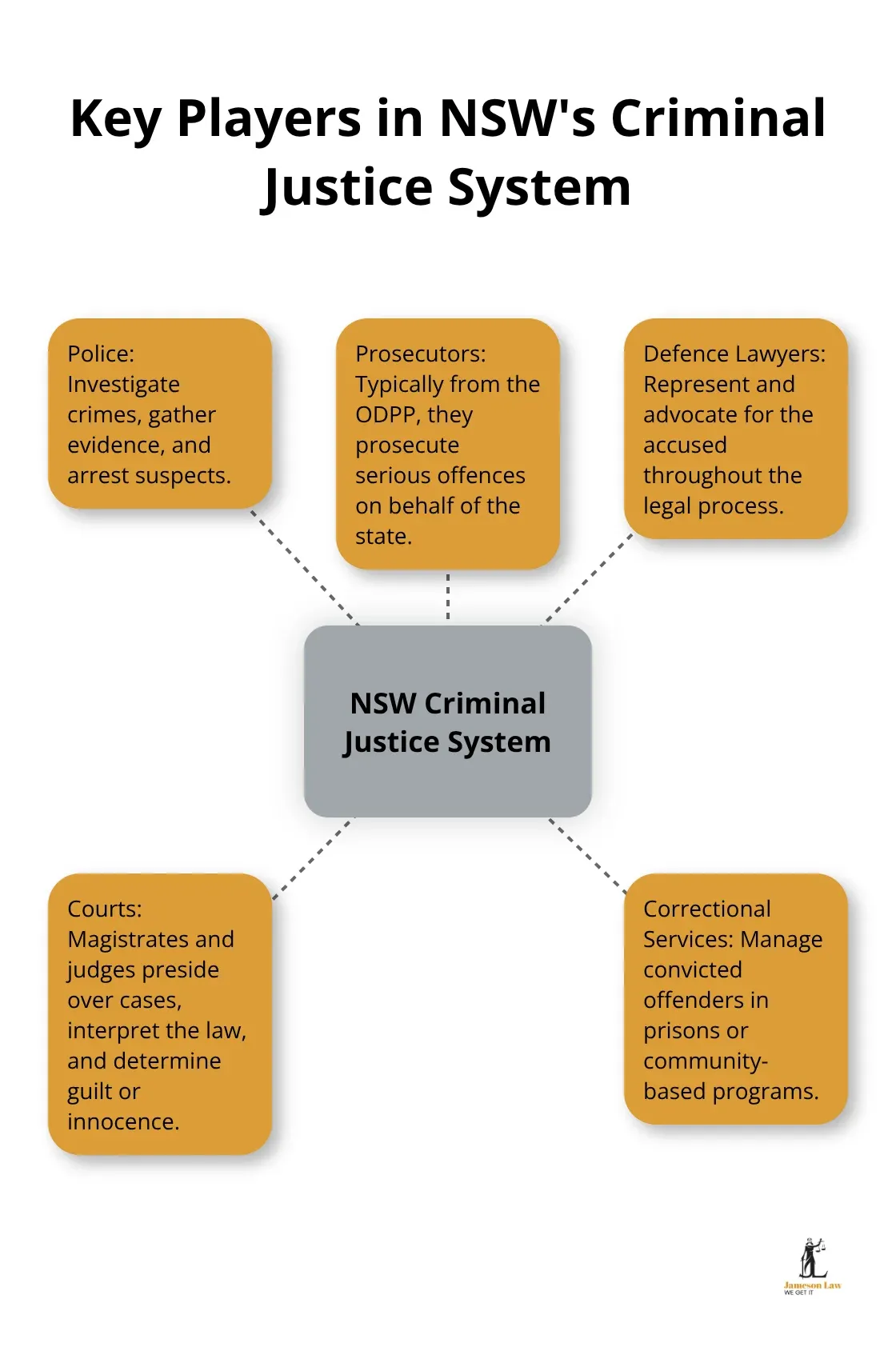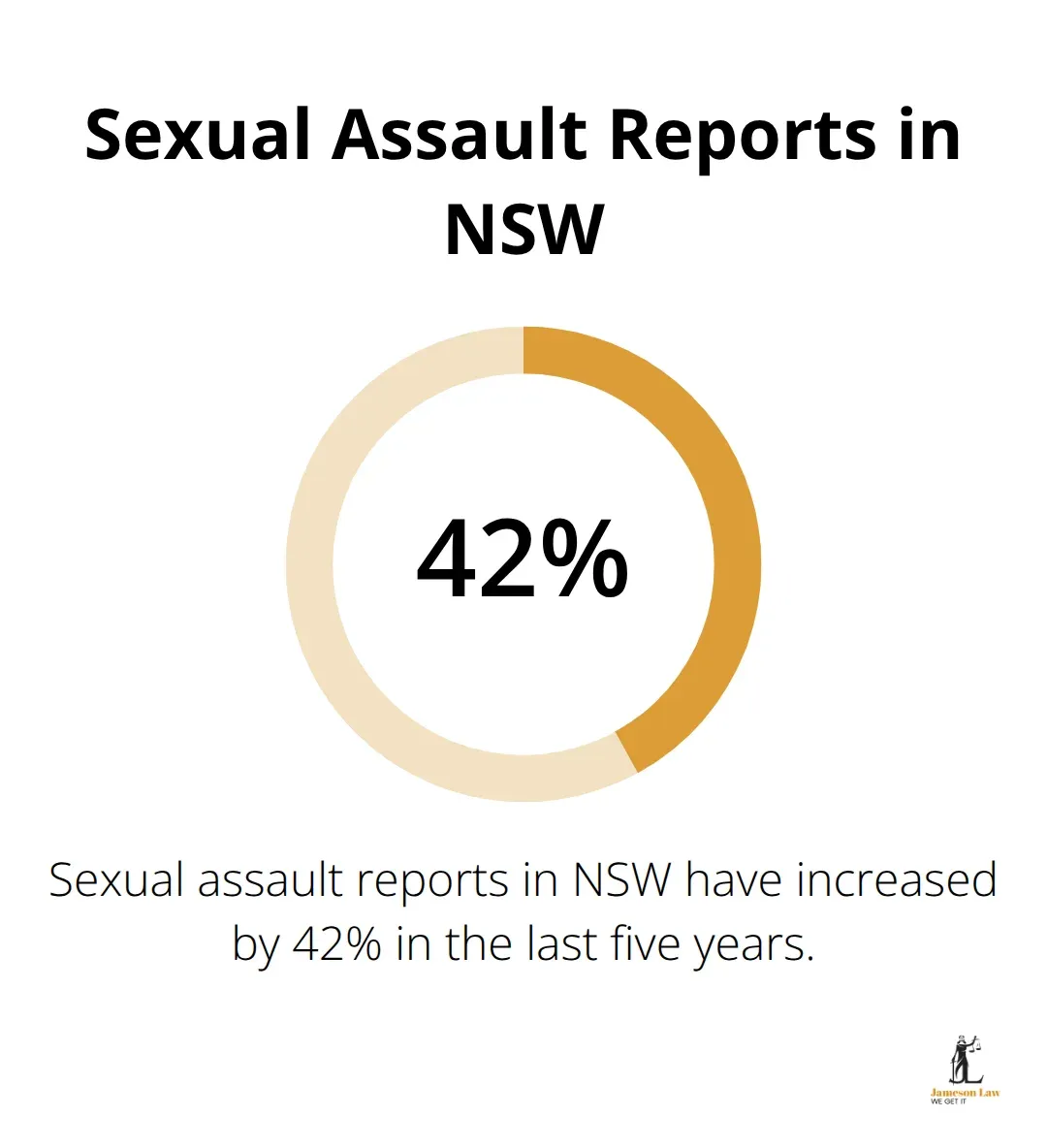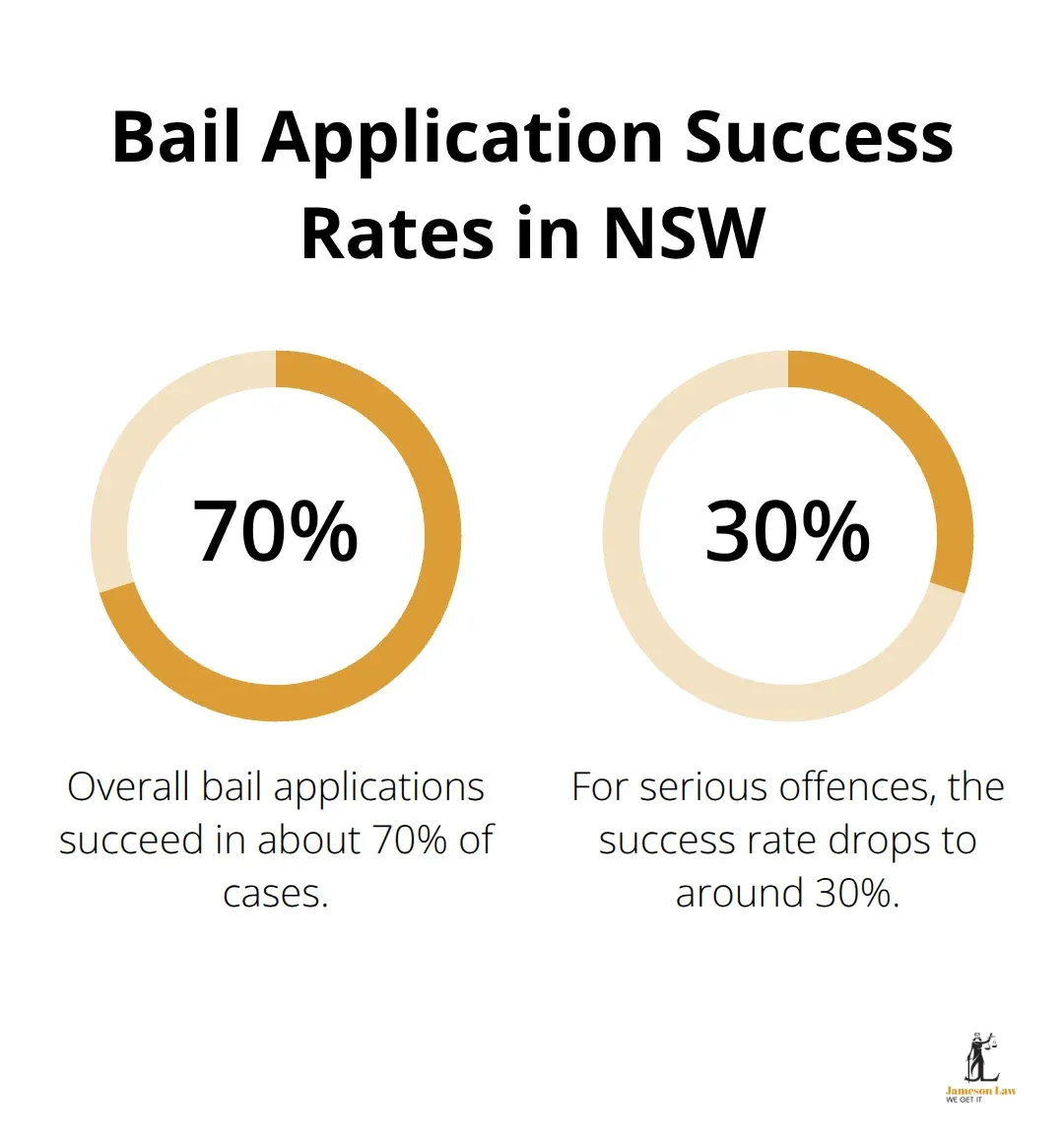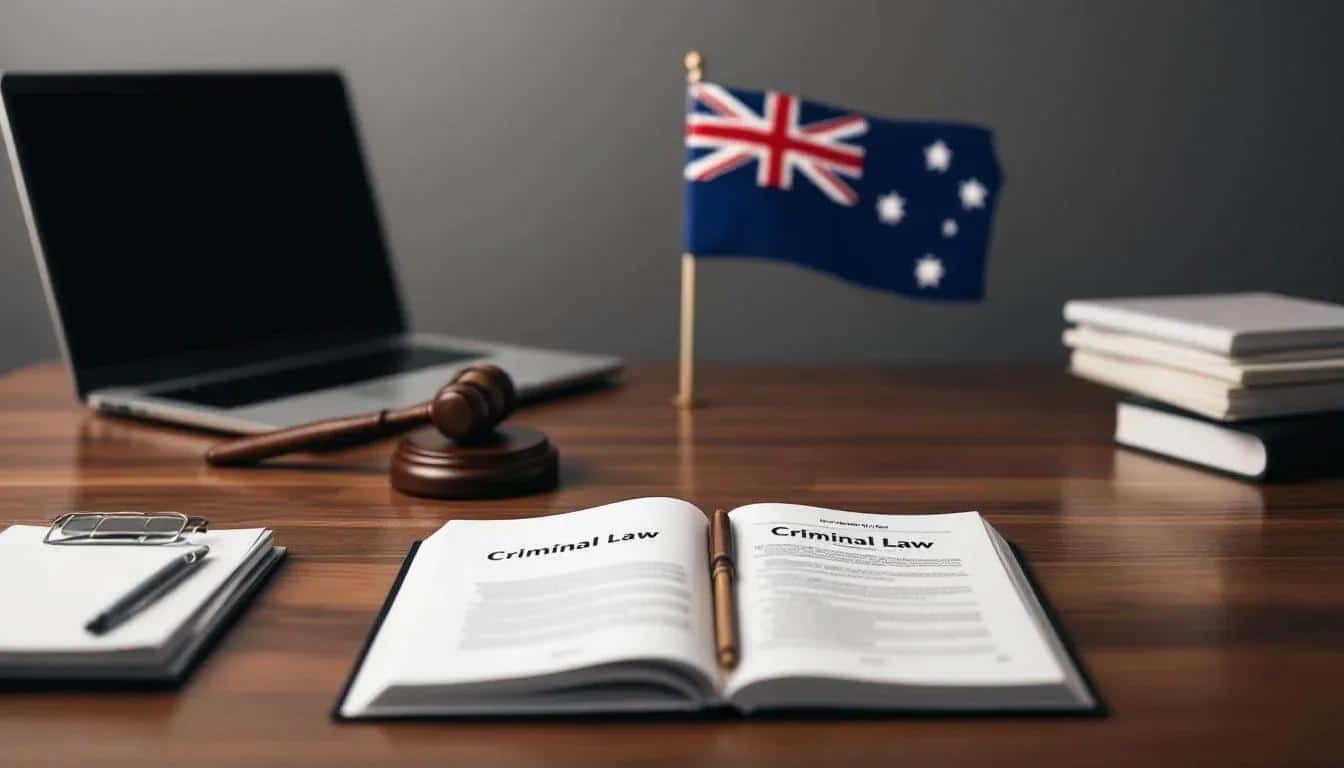Need a Sydney criminal lawyer now? Call (02) 8806 0866 · Criminal Law — Jameson Law · Key law: Crimes Act 1900 (NSW) · Courts: NSW Courts
Criminal law in New South Wales forms the backbone of our justice system, defining offences and setting out penalties for those who break the law. It’s a complex field that affects everyone, from everyday citizens to businesses and government entities.
At Jameson Law, we understand the intricacies of NSW criminal law and its impact on individuals facing charges. This guide aims to provide a clear overview of the key aspects of criminal law in our state, helping you navigate this challenging legal landscape.
What is Criminal Law in NSW?
Criminal law in New South Wales (NSW) forms the foundation of our justice system. It defines offences, sets penalties, and outlines procedures for dealing with lawbreakers. This complex field affects everyone, from everyday citizens to businesses and government entities.
The Purpose of Criminal Law
NSW criminal law aims to maintain social order and protect the community. It achieves this through:
- Deterrence of potential offenders
- Punishment of criminals
- Rehabilitation of offenders
- Protection of society from dangerous individuals
The law also upholds justice and ensures fair treatment for those accused of crimes.
Key Legislation: The Crimes Act 1900 (NSW)
The Crimes Act 1900 (NSW) sets out state criminal offences for New South Wales, along with their defences and maximum penalties. This comprehensive legislation outlines most criminal offences in the state (from minor infractions to serious indictable offences). It defines crimes such as assault, theft, fraud, and homicide, while specifying maximum penalties for each offence.
Lawmakers regularly update the Crimes Act to reflect societal changes and address emerging criminal behaviours. Recent amendments have tackled issues like cybercrime and domestic violence offences.
The Criminal Justice System in Action
NSW’s criminal justice system involves several key players:
- Police: They investigate crimes, gather evidence, and arrest suspects. (NSW Police)
- Prosecutors: Typically from the Office of the Director of Public Prosecutions (ODPP), they prosecute serious offences on behalf of the State.
- Defence lawyers: They represent and advocate for the accused. (Your rights & process)
- Courts: Magistrates and judges preside over cases, interpret the law, and determine guilt or innocence. (NSW Courts)
- Correctional Services: They manage convicted offenders in prisons or community-based programs. (Corrective Services NSW)

The Role of Legal Representation
Navigating the complexities of NSW criminal law requires expert guidance. Experienced criminal lawyers work to ensure fair treatment and robust legal representation for those accused of crimes. They interpret complex legal statutes, build strong defences, and advocate for their clients’ rights throughout the entire legal process.
As we move forward, we’ll explore the most common criminal offences in NSW and how the law addresses them.
Common Criminal Offences in NSW
Assault and Drug Offences
BOCSAR data shows significant trends in reported sexual offences in recent years.

Drug offences continue to pose a significant challenge. The Australian Criminal Intelligence Commission wastewater reports track consumption trends of major illicit substances nationally and in NSW.
Property Crimes
Theft and property crimes persist as major issues in NSW. See the latest BOCSAR crime briefs for trends in motor vehicle theft and break and enter.
Traffic Offences
Traffic offences, while often perceived as minor, can lead to serious consequences. NSW Centre for Road Safety reports that speeding remains a leading cause of fatal crashes; drink and drug driving also contribute significantly to road trauma.
White-Collar Crimes
White-collar crimes, including fraud and financial misconduct, have become increasingly sophisticated. See ASIC enforcement reports for misconduct trends. Cybercrime has seen a sharp uptick, with the Australian Cyber Security Centre receiving frequent cybercrime reports.
These common offences represent only a fraction of the criminal law landscape in NSW. The next section will explore the legal process and rights of individuals accused of these and other crimes, providing valuable insights into navigating the criminal justice system.
Navigating the NSW Criminal Justice System
Arrest and Police Questioning
The NSW police must inform you of the reason for your arrest and caution you about your right to silence. You have the right to contact a lawyer before answering questions.
Police must record all interviews for serious offences. You’re not obligated to participate in a police interview. Anything you say can become evidence in court. It’s smart to seek legal advice before making statements. (LawAccess NSW)
Bail Applications
The Bail Act 2013 (NSW) governs bail decisions. Courts consider factors like offence seriousness, prosecution case strength, and community ties.
Recent NSW Bureau of Crime Statistics and Research data shows many bail applications succeed overall, with lower success rates for the most serious offences. A skilled lawyer can improve your chances of a successful bail application.

Court Proceedings and Trial Process
The trial process varies based on offence severity. Summary offences go to the Local Court. More serious indictable offences may go to the District Court or Supreme Court.
Local Court matters typically resolve within months. For District Court trials, wait times can be lengthy. This delay underscores the need for efficient case management and early legal intervention.
During trials, the prosecution must prove guilt beyond reasonable doubt. The accused can challenge evidence, call witnesses, and testify in their own defence. Expert legal guidance helps exercise these rights effectively.
Sentencing and Appeals
If found guilty, NSW sentencing options range from fines and good behaviour bonds to imprisonment. The Crimes (Sentencing Procedure) Act 1999 guides sentencing decisions. Judges weigh factors like offence nature, offender background, and mitigating circumstances.
You can appeal against conviction or sentence. Strict time limits apply. For Local Court matters, you usually have 28 days to lodge an appeal. District and Supreme Court cases often have shorter timeframes. See also NSW Caselaw for judgments.
Final Thoughts
Criminal law in New South Wales impacts every resident. The legal system’s complexities can overwhelm individuals facing charges or court proceedings. Early legal advice plays a significant role in criminal matters and can affect case outcomes positively.
We at Jameson Law specialise in criminal law in New South Wales. Our team provides expert guidance through each step of the legal process. We protect your rights and strive for the best possible outcome in your case.
The criminal justice system in NSW evolves constantly, with new laws and precedents emerging regularly. Professional legal support becomes invaluable in navigating these changes. We stay informed about all developments in criminal law to provide up-to-date, relevant advice to our clients. Call our Sydney office on (02) 8806 0866 or request a consultation.













